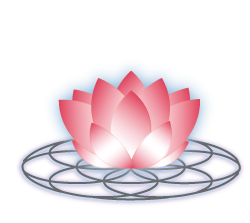Not all teas are safe during pregnancy, and pregnant persons will be told that they have to limit their caffeine to 200 mg a day. This is equivalent to a 12 oz coffee or 10 x 8 oz of black coffee or 5 x 8 oz of green tea. Caffeine during pregnancy has been associated with a decreased birth weight of the baby, and a higher risk of miscarriages. So it's easy to see why some people avoid it altogether!
There are some teas that are safe to drink during pregnancy, and they have additional benefits as well. These teas are listed below, along with a short description of what they do, and when it is safe to drink them because some of them are not safe to drink throughout the pregnancy. Note that these teas, while safe, should be enjoyed in moderation (ie. not drinking 6 cups of a single tea a day).
Ginger - throughout pregnancy
Ginger is one of the teas that are safe to drink throughout pregnancy. It is amazing for nausea and unsettled stomachs. As a root, you want to steep it for 20 minutes to get all of the good phytonutrients and contents from it.
St. John's Wort - throughout pregnancy
This herb is renowned for it's antidepressant or mood elevating properties. It should only be used for mild depression, otherwise seeing a health care practitioner is warranted.
Dandelion Leaf and Root - throughout pregnancy
The leaf has diuretic properties, which is really helpful for fluid retention during pregnancy. The leaf is also high in various minerals. The Root has a laxative effect, to help you have regular bowel movements. As a root, you want to steep it for 20 minutes to get all of the good phytonutrients and contents from it.
Marshmallow Root - throughout pregnancy
Both of these herbs are wonderful for heartburn symptoms. They help to coat the lining of the esophagus to decrease irritation from the acid that comes up during heartburn. As a root, you want to steep it for 20 minutes to get all of the good phytonutrients and contents from it.
Echinacea - throughout pregnancy
Is helpful for boosting your immune system when you think you are getting sick. It can be taken when you notice you are getting sick, and during depending on when you are able to notice it. It can be taken as a tincture, and you know you have found a good tincture if your tongue gets a tingly sensation afterwards.
Chamomile - throughout pregnancy
Can help with calming down the nerves and to improve digestion, especially if you notice that you are more gassy or bloated than normal. The trick to making it helpful for digestion is to cover the pot or cup and steep for 20 minutes, that way you are able to extract those compounds that are more helpful for digestion instead of just the calming effect this tea has with shorter steeps. However, if you have a history of hayfever, this is not the tea for you.
Red Raspberry Leaf - from weeks 18-20 and onwards
Wonderful for tonifying and strengthening the uterus. It is also rich in some minerals that can help to support momma. Add 1-2 tsp of the loose herb into your cup of hot water, and let steep for 10 minutes. Can drink up to 2 cups a day.
Nettle - from 20 weeks and onwards
Nettle is rich in minerals, and as a result, is wonderful for tonifying the body and uterus. It can help support kidney function and connective tissues. Best if you steep for 6 hours. You can put it in the fridge overnight, and drink it throughout the day.
Withania - third trimester
Is a very useful adaptogen and nourishing herb. It is able to help you respond to stress better (making it an adaptogen), and helps strengthen you up by nourishing various parts of your body. As a root, you want to steep it for 20 minutes to get all of the good phytonutrients and contents from it.
Note that there are Red Flags that always warrant medical attention, and should be treated by a Medical Doctor instead of with herbs. These include:
Edema or swelling of the hands and face
Continual vaginal bleeding
Initial outbreak of herpes blisters during the first trimester
Severe pelvic or abdominal pain
Continual, severe mid-back pain
Severe headaches, blurry vision, or epigastric pain
Rupture of membranes prior to 37 weeks of pregnancy
Regular uterine contractions prior to 37 weeks of pregnancy
Cessation of fetal movement (Aviva Romm)
Happy tea drinking!
~ Dr. Charmagne

